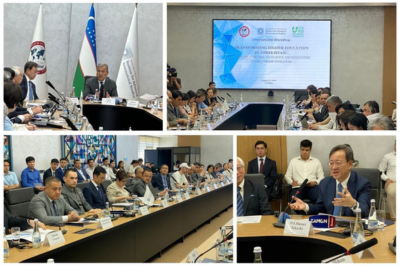A recent study coauthored by the UzFarmBarometer project researchers sheds light on the adoption of cotton combine services and its impact on farm technical efficiency in Kazakhstan and Uzbekistan. Drawing on data from 511 cotton-growing farms collected in 2019, the study employs stochastic frontier analysis to explore the role of mechanization in improving productivity.
The findings reveal that mechanized cotton harvesting through combine services enhances technical efficiency by streamlining the harvesting process. However, the adoption and benefits vary significantly between the two countries. In Kazakhstan, where the cotton sector has been liberalized, over half of the surveyed farmers use combines, driven by labor availability and costs. Conversely, in Uzbekistan, combines are less common due to historical reliance on manual labor and government control.
The study highlights key determinants of efficiency, such as crop diversification and soil quality. Interestingly, Uzbek farmers were found to be more technically efficient than their Kazakh counterparts, albeit less productive, reflecting the different institutional and market environments. The research emphasizes the need for tailored mechanization policies that consider regional labor dynamics and provide alternative employment opportunities for displaced workers.
These insights offer valuable guidance for policymakers aiming to enhance agricultural productivity and sustainability through mechanization in Central Asia.
The full paper is available at:
Bilal, M., Tadjiev, A., Djanibekov, N. (2024). "The adoption of cotton combine services and farm technical efficiency: evidence from Kazakhstan and Uzbekistan." Journal of Agribusiness in Developing and Emerging Economies. https://doi.org/10.1108/JADEE-06-2024-0207





